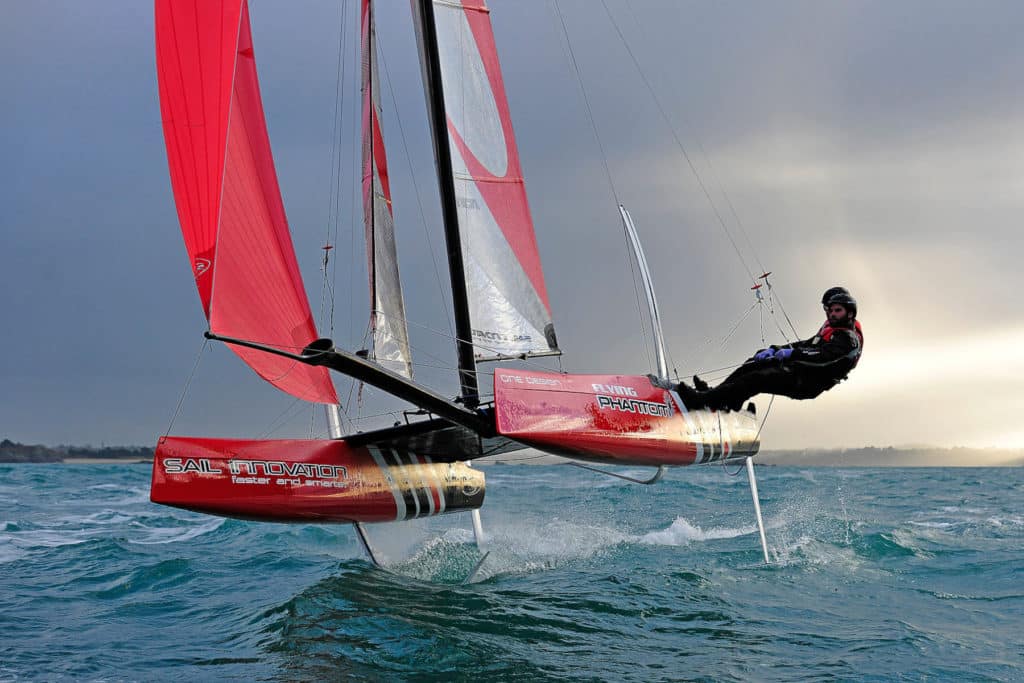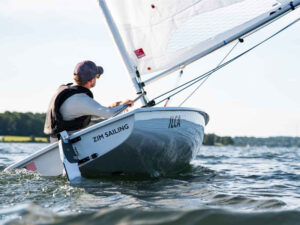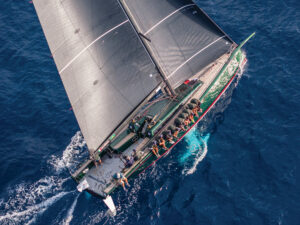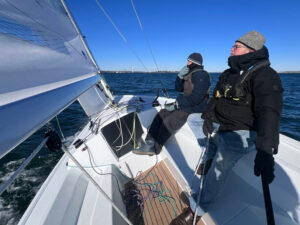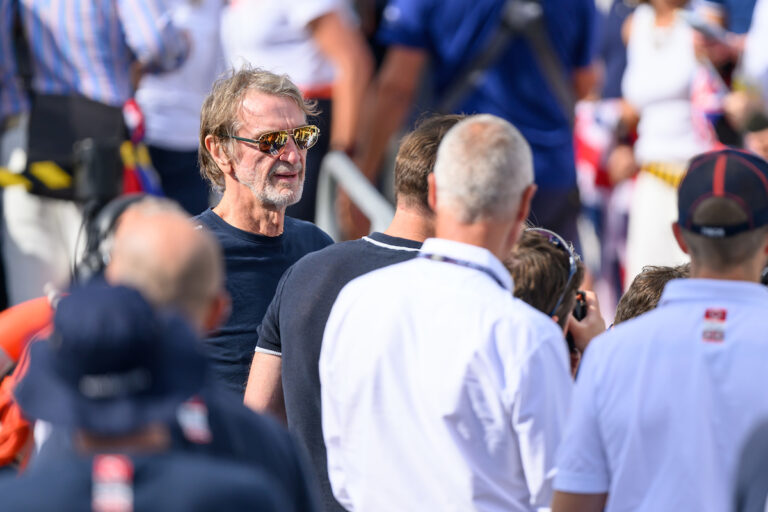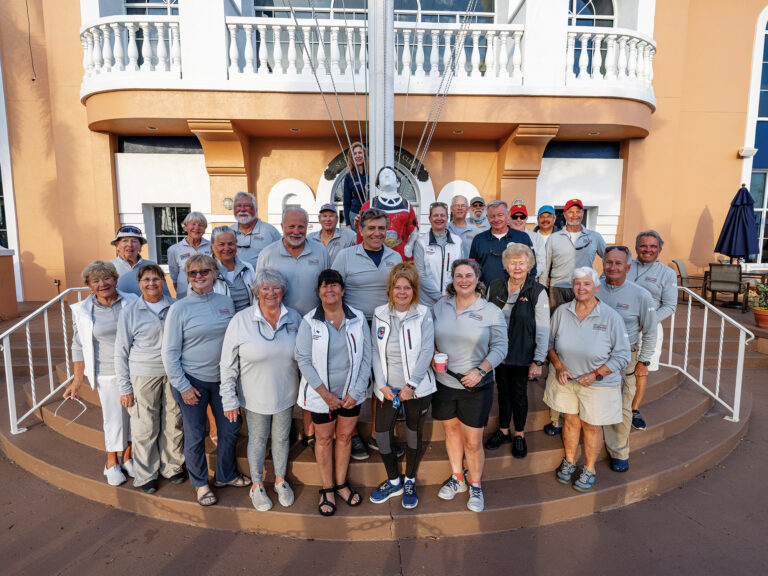Most of us will never have the thrill of flying at 30 knots along the water in the San Francisco Bay on an AC72 in our lifetime, but the Flying Phantom’s developers say the sensation of foiling on their 18-foot catamaran offers a taste of what sailing an America’s Cup boat is like.
While this writer has not yet tested the boat, I have seen it blasting along at more than 20 knots past the rocky coastline of Saint Lunaire, France, and the published specs are indeed impressive. You can supposedly start foiling with the gennaker in seven knots of wind and reach the 30-knot mark in a downwind breeze of 15-20 knots. Foiling upwind is not a problem, either, in a true windspeed of 10 or more knots. The fast-yet-stable design will allow a weekend sailor a steady foiling experience at a maximum speed of 35 knots, the designers says. The price tag: 29,000 euros ($40,000).
“We want to democratize foiling,” Alexandre Udin, CEO of Phantom International, says.
The Flying Phantom’s launch came just a few weeks after the end of the very dramatic America’s Cup last year, which was a fantastic advertisement for foiling, Udin says.
“The last America’s Cup was the greatest thing that could have happened to the world of sailing, thanks to the revolutionary vision of Larry Ellison and Russell Coutts,” Udin says. “I strongly believe that foiling cats are the future of our sport and will attract the younger generation to sailing.”
The genesis of what Udin calls the “Phantom Project” began about three years ago. Martin Fischer, one of the industry’s most respected foiling specialists, was responsible for the boat’s overall design, while leaving the sail design to Udin. The idea was to create a one-design boat geared for speed and foiling that would be forgiving enough so a small error by an amateur sailor would not cause the boat to do somersaults over the water.
An F18 racing catamaran developed in parallel served as a test boat for the Phantom Project. The speed tweaks proved worthy enough for Olivier Backes and Matthieu Vandame to win the F18 World Championship title in 2012.
Fisher and the design team also worked with Franck Cammas and Groupama to develop the foil technology on Groupama C. Under a technology-sharing agreement, Fischer was able to use technologies gained from Groupama C‘s development on the Phantom project. Cammas, in turn, applied technology from the Phantom F18 to Groupama’s design.
A main issue was figuring out how to apply Groupama C‘s design tweaks on the Phantom in a way that would not make the boat too fast and radical for amateur sailors to handle, a key challenge for such a small boat. A critical variable was finding the sweet spot angle for the foils and rudders, built around a carbon mast, boom, and hull. Ultimately, the Phantom’s final design was a compromise between lowering drag and adding stability.
The design team tried out eight foils and four generations of rudders before they were satisfied. “In the end, we achieved high performance and stability, in a way that weekend sailors can appreciate,” Udin says.
Udin says Phantom International has sold over 30 boats, with eight boats scheduled for delivery in the U.S. So far, the company has invested 500,000 euros and expects to see sales of 4.5 million euros in the near future.
The very deep and dark reds and blacks of the display model accent the “L’” shape of the foils and the “T” design of the rudders on the catamaran, giving it that stealthy “phantom” look. But for owners who want something else, over a thousand different color schemes are available.
Maybe understated colors and graphics might better serve those who want to discretely enter and then win an amateur cat race–before anyone has time to wonder how an amateur sailor was suddenly able to foil along at speeds of more than 30 knots.
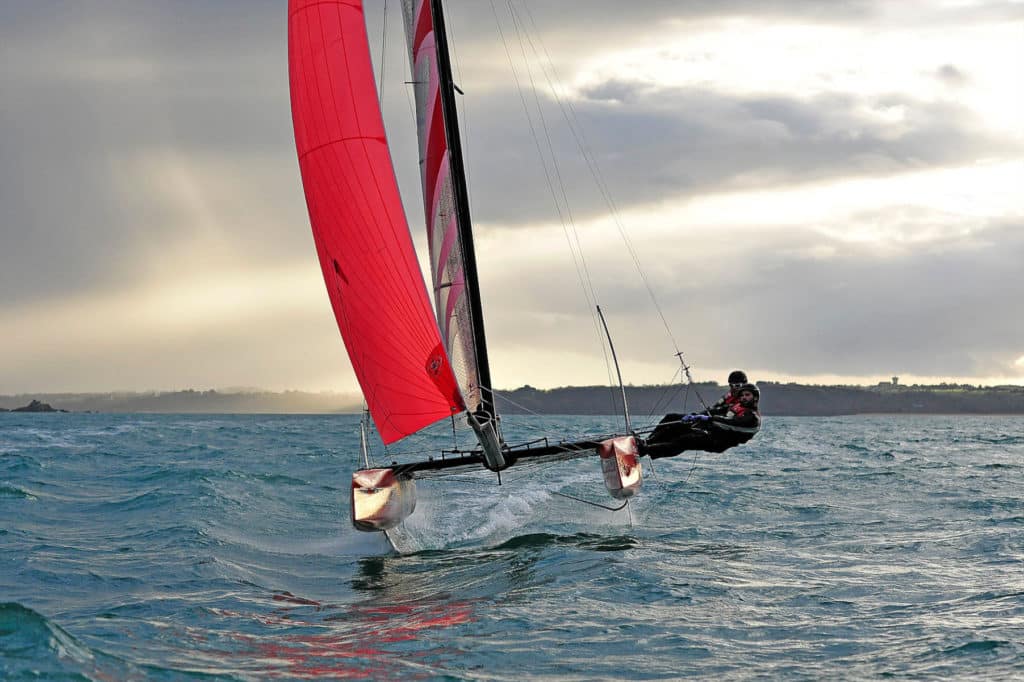
Phantom Foiling Catamaran
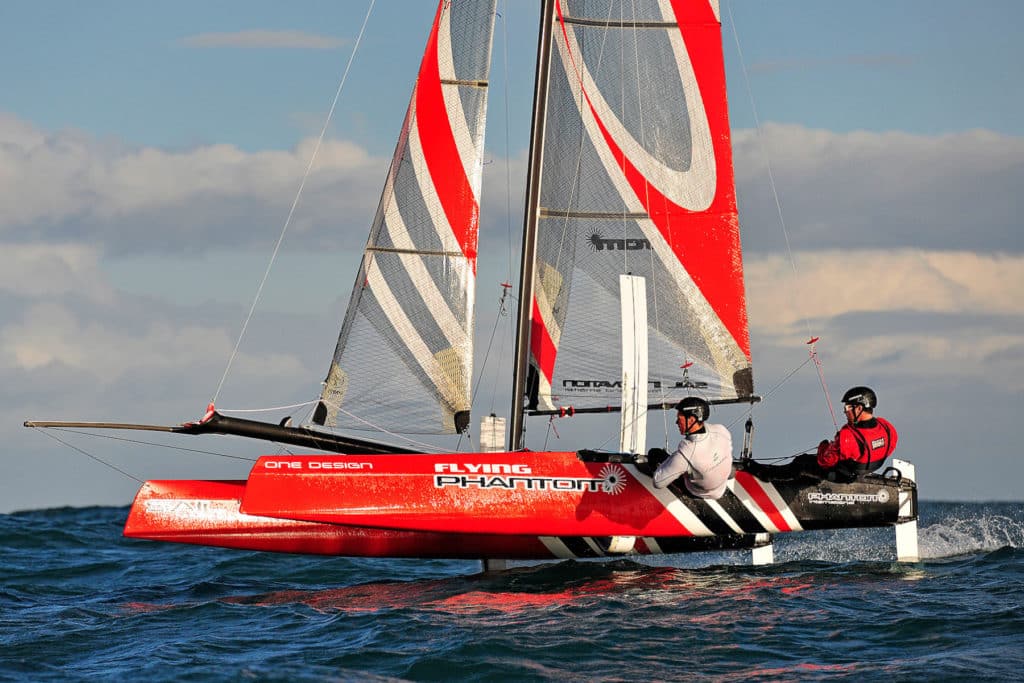
Phantom Foiling Catamaran 2
